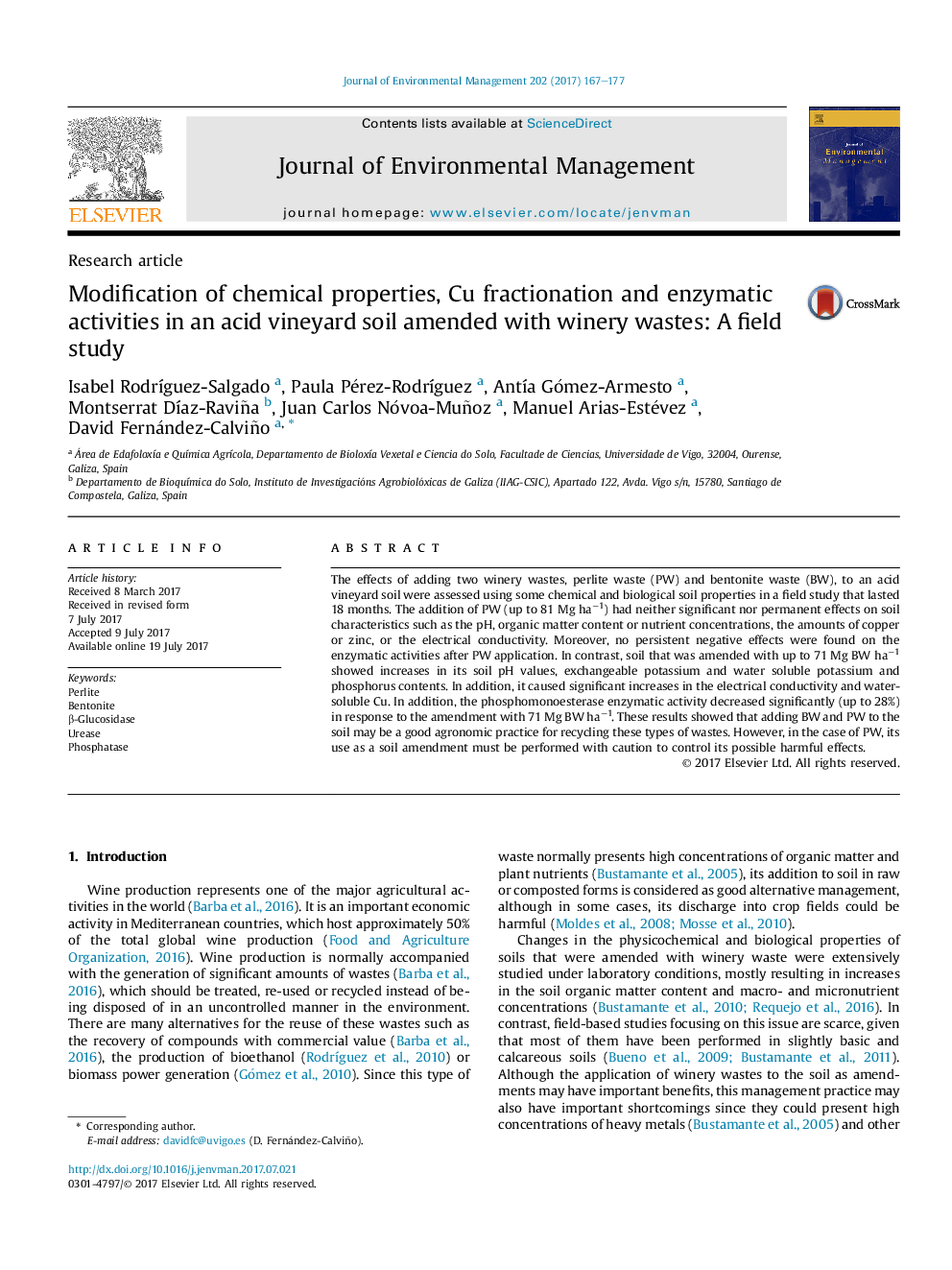| Article ID | Journal | Published Year | Pages | File Type |
|---|---|---|---|---|
| 5116466 | Journal of Environmental Management | 2017 | 11 Pages |
â¢Suitability of winery wastes were tested in an acid vineyard soil under field conditions.â¢Main soil properties, Cu and Zn fractionation and enzymatic activities were analyzed.â¢Perlite waste had little effects on the studied properties.â¢Bentonite waste increased the soil pH and the most labile fractions of potassium and phosphorus.â¢Bentonite waste increased soluble Cu in the soil, and had also negative effects on phosphatase enzymatic activity.
The effects of adding two winery wastes, perlite waste (PW) and bentonite waste (BW), to an acid vineyard soil were assessed using some chemical and biological soil properties in a field study that lasted 18 months. The addition of PW (up to 81 Mg haâ1) had neither significant nor permanent effects on soil characteristics such as the pH, organic matter content or nutrient concentrations, the amounts of copper or zinc, or the electrical conductivity. Moreover, no persistent negative effects were found on the enzymatic activities after PW application. In contrast, soil that was amended with up to 71 Mg BW haâ1 showed increases in its soil pH values, exchangeable potassium and water soluble potassium and phosphorus contents. In addition, it caused significant increases in the electrical conductivity and water-soluble Cu. In addition, the phosphomonoesterase enzymatic activity decreased significantly (up to 28%) in response to the amendment with 71 Mg BW haâ1. These results showed that adding BW and PW to the soil may be a good agronomic practice for recycling these types of wastes. However, in the case of PW, its use as a soil amendment must be performed with caution to control its possible harmful effects.
